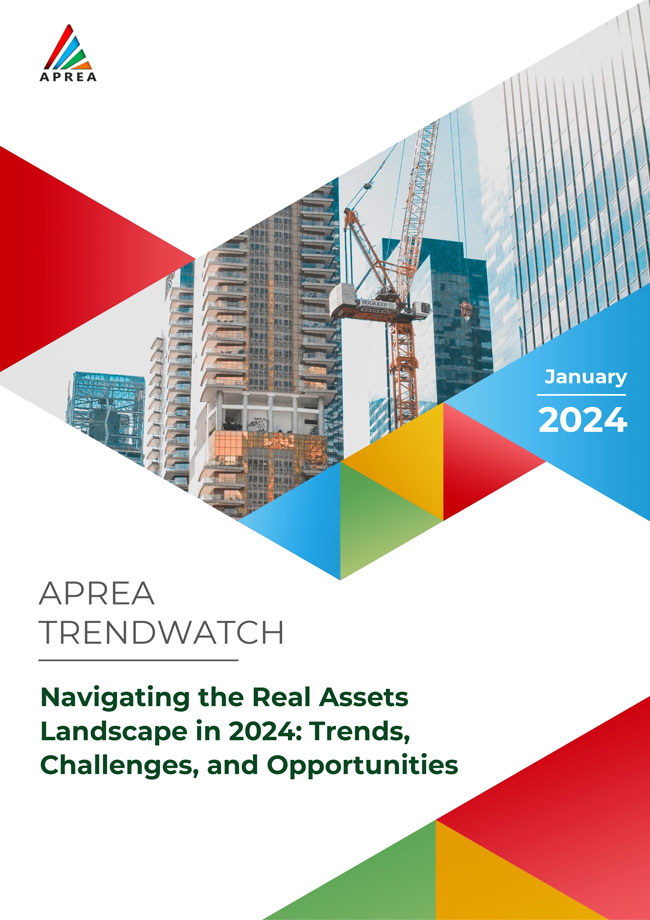During the past years, businesses have experienced a series of once-in-a-generation challenges, forcing them to re-evaluate how they operate. From COVID-19 to geopolitical instabilities, these challenges have shown that individual events, activities and decisions all have impacts that cascade throughout a value chain, potentially with global consequences.
The challenges posted by COVID-19 have underscored the true meaning and importance of ‘Business as Mutual’. No man is an island, and no business can act independently. We need to work together in order to thrive. One thing is clear: moving forward, business as usual is obsolete. We must transition to Business as Mutual.
Read MoreThe Global Real Estate DEI Survey is the only corporate study of diversity, equity and inclusion (DEI) management practices and data benchmarking in the commercial real estate (CRE) industry.
This third iteration of the Global Real Estate DEI Survey is the result of the collaboration between six sponsoring associations NAREIM, NCREIF, PREA, REALPAC, ULI and Ferguson Partners, as well as 14 supporting associations AFIRE, AIA, APREA, AREF, BOMA, BPF, CFMA, CoreNet Global, CREFC, EPRA, NAIOP, OSCRE, PFA and RICS.
This is a summary report of high-level results providing a view of DEI metrics relating to:
departure trends year-over-year.
Survey participants receive a spreadsheet with full data, providing for an in-depth look and suitable for benchmarking DEI policies and achievements against peers.
The Global Real Estate DEI Survey Volume III represents 296,902 full-time real estate employees, $1.98 trillion of assets under management, and a cross-section of the commercial real estate industry in terms of size, region and business classification.
The Survey brings together participation from 216 unique organizations which provided 236 submissions detailing their DEI practices in North America (79.2% of respondents), Europe (11.9%) and Asia-Pacific (8.9%). Data was collected between July 17 and September 29, 2023.
Download the Report Read MoreCBRE’s 2024 Asia Pacific Investor Intentions Survey was conducted in November and December 2023. Over 500 responses were received from participants who were asked a range of questions related to their buying intentions, perceived challenges and preferred strategies, sectors and markets for the coming year.
The survey uncovered persistently weak buying intentions across Asia Pacific, with selling intentions hitting the highest mark since surveys began. Whilst the rate hike cycle has come to a halt in major global markets, investors are waiting for indications that the current repricing cycle has finished before deploying significant amounts of capital.
Investors in most markets (ex. Japan) will therefore continue to adopt a wait and see approach in H1 2024. However, amid growing expectations that the U.S. Federal Reserve will begin cutting rates in H2 2024, and Asia Pacific’s central banks following suit, commercial real estate investment activity should accelerate in the back half of the year.
Other key findings:
This report was originally published in https://www.cbre.com/insights/reports/asia-pacific-investor-intentions-survey-2024
Download the Report Read MoreThe evolving landscape of real assets in 2024 reflects a cautious optimism after a year of uncertainty in 2023. From Asia Pacific's stable cycles offering diversification to critical shifts in logistics and office spaces, the market dynamics are diverse. Investors navigate growth sectors such as new economy, senior housing, and co-living spaces, while private credit opportunities emerge in various markets. Structural shifts, including technology integration and sustainability initiatives, reshape demand trends. Amid global economic uncertainty, strategic flexibility and a focus on growth sectors define the approach for investors in the year ahead.
